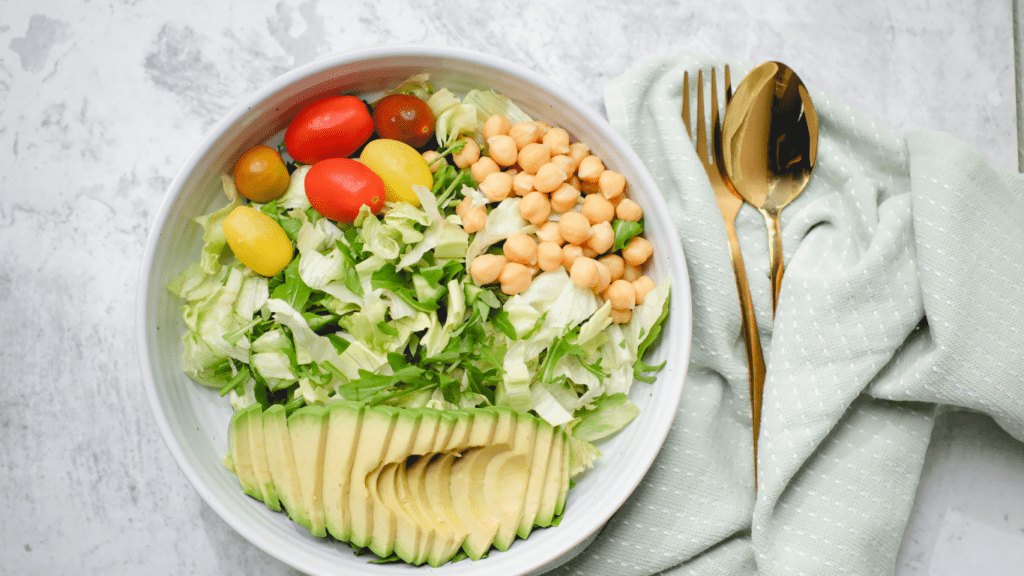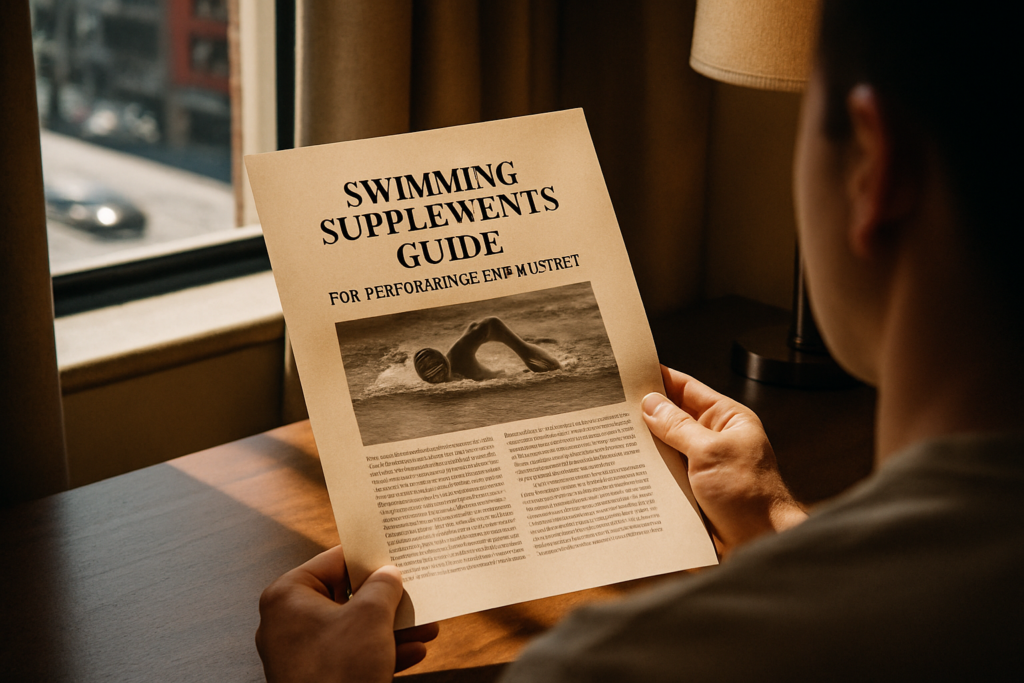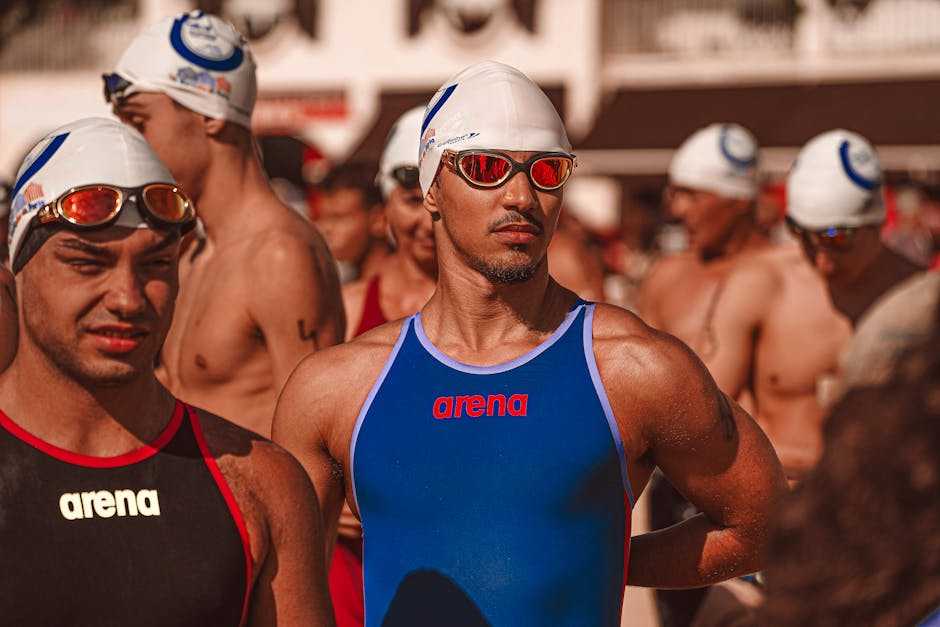As an experienced endurance swimmer, I know the crucial role that nutrition plays in optimizing performance in the water. Fueling your body with the right foods can make a significant difference in your stamina and overall swimming capabilities. In this article, I’ll share some top dietary tips tailored specifically for endurance swimmers looking to enhance their endurance and reach their peak potential in the pool.
From pre-swim snacks to post-workout meals, what you eat directly impacts your swimming performance. By making simple yet strategic adjustments to your diet, you can boost your energy levels, improve recovery time, and swim stronger for longer durations. Whether you’re training for a competition or simply aiming to improve your endurance swimming skills, incorporating these dietary tips into your routine can help take your performance to the next level.
Understanding Nutritional Needs for Endurance Swimmers
As an endurance swimmer, I know how vital it is to meet my body’s nutritional requirements to excel in the water. Understanding these needs can significantly impact my performance and overall swimming abilities. Let’s delve into the essential components that make up a well-rounded diet for endurance swimmers.
Importance of Macronutrients
Focusing on the three primary macronutrients—carbohydrates, proteins, and fats—is crucial for endurance swimmers like myself. Carbohydrates serve as a primary energy source, providing the fuel needed for long swimming sessions. Proteins aid in muscle repair and recovery, essential for endurance athletes to maintain strength and performance. Healthy fats are valuable for sustained energy levels and overall health.
Role of Micronutrients
Micronutrients play a key role in supporting various bodily functions that are essential for optimal swimming performance. Nutrients like vitamins and minerals help regulate metabolism, strengthen the immune system, and support overall well-being. For endurance swimmers, ensuring an adequate intake of micronutrients is fundamental in enhancing recovery, preventing fatigue, and maintaining peak performance levels.
Hydration Strategies for Long Swimming Sessions

Signs of Dehydration in Swimmers
- Watch out for signs of dehydration such as dry mouth, dark urine, fatigue, dizziness, and decreased performance levels.
- Dehydration can impair cognitive function and physical performance, affecting swimming efficiency and endurance.
- If experiencing any of these symptoms, it’s vital to rehydrate immediately to prevent further complications
- Before: Drink water or electrolyte-rich fluids at least an hour before swimming to ensure proper hydration levels.
- During: Hydrate regularly during breaks between sets or laps to maintain fluid balance and prevent dehydration.
- After: Replenish lost fluids post-swim by consuming water, sports drinks, or coconut water to restore hydration levels and aid in recovery.
- Monitor your hydration: Pay attention to your body’s thirst signals and aim to drink fluids consistently throughout the day to stay adequately hydrated for optimal performance.
Pre-Swim Nutrition for Optimal Performance
When preparing for a long swim, paying attention to pre-swim nutrition is key. Here are some essential tips to help you fuel your body effectively:
What to Eat Before a Long Swim
- Complex Carbohydrates: It’s essential to focus on complex carbohydrates like whole grains, fruits, and vegetables. These foods provide a sustained release of energy, helping you maintain stamina throughout your swim.
- Moderate Protein: Including moderate amounts of lean protein sources such as chicken, fish, or tofu in your pre-swim meal can aid in muscle repair and provide a steady source of energy.
- Healthy Fats: Don’t forget healthy fats like avocados, nuts, and seeds. They help keep you feeling full longer and provide a concentrated source of energy.
- Hydration: Alongside your meals, ensure you’re adequately hydrated. Drink water or electrolyte-rich beverages to maintain optimal hydration levels.
- Timing Matters: Ideally, aim to eat a well-balanced meal 2-3 hours before your swim. This timeframe allows for proper digestion and absorption of nutrients.
- Light Snacks: If you’re unable to have a full meal before swimming, opt for a light snack rich in carbohydrates and a small amount of protein about 30-60 minutes before hitting the water.
- Avoid Heavy Foods: Stay away from heavy, fatty, or high-fiber foods close to your swim time to prevent discomfort or cramping during your swimming session.
By following these pre-swim nutrition tips and timing your meals appropriately, you can optimize your performance as an endurance swimmer. Remember, fueling your body with the right nutrients is crucial for achieving your swimming goals.
Nutrition During Extended Swimming Events
When it comes to fueling my body during extended swimming events, I focus on maintaining energy with snacks and supplements. It’s essential to keep my energy levels up to sustain performance throughout the swim.
Maintaining Energy with Snacks and Supplements
I rely on easily digestible snacks like energy gels, bananas, or granola bars to replenish carbohydrates and boost my energy levels during long swimming sessions. These quick snacks provide a readily available source of fuel to keep me going strong in the water.
Hydration Tips During the Swim
Hydration plays a crucial role in my swimming performance. I ensure I stay hydrated by sipping on water or sports drinks during breaks in my swim. It’s vital to maintain proper hydration levels to prevent fatigue and optimize muscle function while swimming.
Post-Swim Recovery Foods
After a grueling swimming session, refueling my body with the right foods is crucial for optimal recovery and muscle repair. Here are some ideal foods for muscle recovery and rehydrating after intense swimming sessions:
Ideal Foods for Muscle Recovery
- Salmon: Rich in omega-3 fatty acids, salmon aids in reducing inflammation, promoting muscle recovery, and replenishing protein stores.
- Greek Yogurt: Packed with protein, Greek yogurt helps repair and build muscles post-swim, supporting recovery and replenishing energy levels.
- Quinoa: A high-protein whole grain, quinoa provides essential amino acids for muscle repair and rebuilding after strenuous exercise.
- Berries: Blueberries, strawberries, and blackberries are loaded with antioxidants that help reduce muscle damage and inflammation post-workout.
- Coconut Water: A natural electrolyte source, coconut water helps rehydrate the body after sweating during a rigorous swimming session.
- Watermelon: With its high water content and replenishing electrolytes, watermelon helps in rehydrating and restoring hydration levels post-swim.
- Homemade Smoothies: Blending fruits like bananas, berries, and adding Greek yogurt can create a replenishing post-swim smoothie packed with hydration and essential nutrients.
- Electrolyte Drinks: Opt for low-sugar electrolyte drinks to replace lost minerals and hydrate effectively after an intense swimming workout.
By incorporating these post-swim recovery foods into my diet, I ensure my body gets the necessary nutrients to recover, repair muscles, and stay hydrated for upcoming swimming challenges.


 is a dedicated fitness enthusiast with a deep-seated passion for swimming and holistic health. Leveraging her extensive background in competitive swimming and personal training, she provides readers with expert advice on optimizing their workouts and enhancing their overall well-being. Kiara's writing stands out for its blend of motivation and practical tips, making complex fitness concepts accessible and actionable. She is committed to helping individuals of all levels reach their fitness goals by promoting a balanced approach to exercise and nutrition. In her articles on Swim Fast Stay Fit, Kiara shares her personal experiences, training techniques, and strategies for overcoming common fitness challenges, inspiring others to lead healthier and more active lives.
is a dedicated fitness enthusiast with a deep-seated passion for swimming and holistic health. Leveraging her extensive background in competitive swimming and personal training, she provides readers with expert advice on optimizing their workouts and enhancing their overall well-being. Kiara's writing stands out for its blend of motivation and practical tips, making complex fitness concepts accessible and actionable. She is committed to helping individuals of all levels reach their fitness goals by promoting a balanced approach to exercise and nutrition. In her articles on Swim Fast Stay Fit, Kiara shares her personal experiences, training techniques, and strategies for overcoming common fitness challenges, inspiring others to lead healthier and more active lives.
